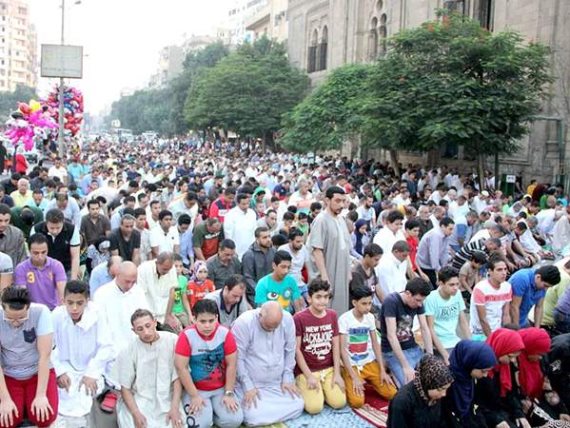“Mubarak requires the quick implementation of the Nuba residence project […]: 'I will go to Aswan if I feel there is any slow down,'” runs the headline of state-owned newspaper Al-Ahram.
The Nuba residence project, intended to solve the problem of the Nubian people who were forced to leave their homes at the time of constructing the Aswan high dam, involves the building of 5321 houses in eight villages, costing LE600 million, according to Ahmed Maghrabi, minister of housing. The project is due to be completed at the beginning of 2011.
Rose al-Youssef also covers the same story with the headline “Mubarak solves the problem of 50 years in 50 days,” adding that “opposition parties praise the President’s efforts.”
Following concerns regarding the sudden increase in the price of wheat, prices are decreasing again worldwide and Egypt is safe once more, according to Rose al-Youssef, which reports that prices have decreased recently by 5.3 percent. Meanwhile, independent Al-Shorouq's headline mentions a “Russian promise to give priority to Egypt as it resumes wheat exportation.”
On upcoming elections, Al-Ahram reports that the opposition Wafd Party will announce on 17 September its stand regarding parliamentary elections. After an important meeting of the party last Sunday on desired amendments to the law to ensure a fair election process, the Wafd Party is awaiting the state's reaction to their list of demands so that they can take a decision regarding their stance on the coming elections.
The ruling National Democratic Party (NDP) has however announced that there is no possibility of changing the political rights law prior to the elections taking place, according to Al-Ahram.
Meanwhile, Ramadan is due to start tomorrow, among much media hype. Al-Shorouq writes that certain political parties have been taking advantage of the holy month to gain popular support. For example, it says, the government is moving the clocks back so that fasting will begin at 7 PM rather than 8 PM, a move highly welcomed by Egyptians. Further, the NDP and the Muslim Brotherhood are giving out Ramadan packages to the poor, allegedly to gain more popularity since the poor are believed to support whoever gives them food, due to Egypt's high poverty rate.
Rose al-Youssef also reports on political forces using Ramadan to obtain signatures from poor people by offering them iftar (the meal to break fasting).
State-owned newspaper Al-Akhbar reports that food commodities prices have increased dramatically as Ramadan approaches, reaching an increase of 43 percent for some products, according to the Consumer Protection Agency. It's well known in Egypt that food consumption reaches its maximum during the month of Ramadan, and thus prices also reach an all-year high, however Al-Akhbar takes the novel approach of sending its reporters into the market to make sure products are available, to monitor prices, and to take note of consumers’ complaints.
Egypt's papers:
Al-Ahram: Daily, state-run, largest distribution in Egypt
Al-Akhbar: Daily, state-run, second to Al-Ahram in institutional size
Al-Gomhorriya: Daily, state-run
Rose al-Youssef: Daily, state-run, close to the National Democratic Party's Policies Secretariat
Al-Dostour: Daily, privately owned
Al-Shorouq: Daily, privately owned
Al-Wafd: Daily, published by the liberal Wafd Party
Al-Arabi: Weekly, published by the Arab Nasserist party
Youm7: Weekly, privately owned
Sawt al-Umma: Weekly, privately owned




